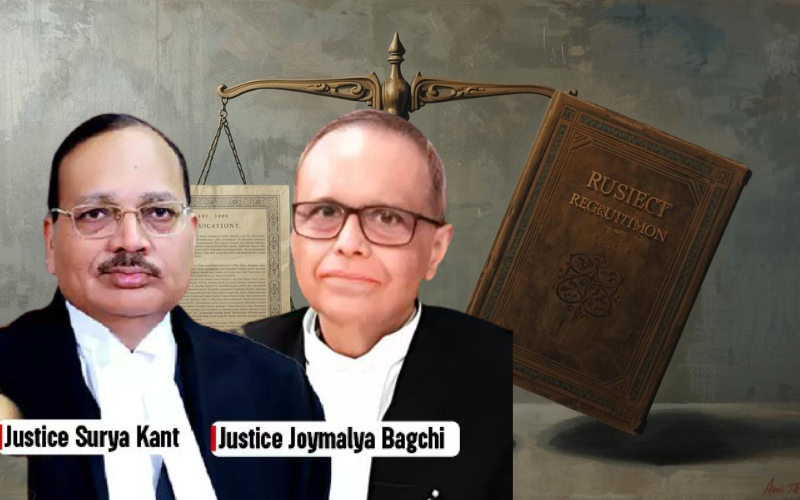Recruitment rules that impose an embargo on the migration of reserved candidates to unreserved categories after availing relaxations such as age concessions must be adhered to
In the case of Union of India v. Sajib Roy, the Supreme Court of India addressed the issue of whether principles of merit-based recruitment could override specific recruitment rules that impose restrictions on the migration of reserved category candidates to unreserved categories after availing certain relaxations. The court's decision provides clarity on why merit-based principles cannot universally override such rules.
1. Background and Legal Context:
- The case involved reserved category candidates (OBC) who availed age relaxations to participate in a recruitment process but were later deemed ineligible for migration to the unreserved category despite scoring higher than the last selected unreserved candidate.
- The High Court had initially permitted such migration by relying on the judgment in Jitendra Kumar Singh v. State of UP, which suggested that relaxations like age or fee concessions do not disrupt the merit-based selection process.
2. Key Legal Instruments:
- An office memorandum dated 01.07.1998 explicitly barred the migration of reserved candidates who have availed relaxations such as in age limits, to unreserved categories.
- This memorandum was a crucial element in the case, as it laid down specific rules that governed the recruitment process in this context.
3. Supreme Court's Analysis:
- The Supreme Court distinguished the present case from Jitendra Kumar Singh, noting that the latter was based on specific statutory interpretations and government orders that allowed for such migration, unlike the present case.
- The court emphasized that recruitment rules or notifications that impose an embargo on migration must be adhered to unless successfully challenged for their constitutional validity. This means that such rules are binding and cannot be overridden by general principles of merit-based recruitment.
4. Legal Precedents and Principles:
- The judgment highlighted that legal precedents must be applied contextually, considering the specific facts and rules of each case. The general principles of merit cannot be applied universally if specific rules impose conditions that alter this merit-based selection process.
- The court cited several judgments where similar principles were established, reinforcing that exceptions in recruitment processes must be viewed through the lens of the applicable rules and regulations.
5. Conclusion:
- The Supreme Court set aside the High Court's decision, reinforcing that the office memorandum's explicit terms prevented the migration of reserved candidates availing of age relaxations to unreserved categories.
- The court held that adherence to recruitment rules is paramount unless they are legally challenged and struck down. This ensures that the recruitment process remains consistent with the laid-down policies and rules.
In summary, the principles of merit-based recruitment cannot override specific recruitment rules because such rules are designed to maintain a structured and legally compliant recruitment process. These rules are in place to ensure fairness and consistency within the framework established by the governing authorities, and deviations from these rules require legal validation rather than a mere reliance on merit-based arguments.
Union of India v. Sajib Roy, (SC) : Law Finder Doc id # 2775908




